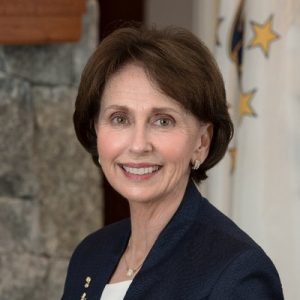Teaching African American history is important, but so is an understanding of all nationalities that make Rhode Island their home.
On Tuesday, May 25, Representative Patricia Morgan, Republican District 26 (West Warwick, Coventry and Warwick) submitted an amendment to H-5697 AFRICAN HERITAGE HISTORY EDUCATION, an act which requires implementation of education courses in African American history in Rhode Island’s elementary and secondary public schools.
Morgan stood to praise the importance of African American history in Rhode Island, but through her amendment, she wanted to expand heritage history education to all the nationalities and ethnicities of people who have come to Rhode Island and made it their home.
“In the current climate of troubling division and attacks on people of different ethnicities, it is important to recognize and appreciate, not only our international legacies, but also the ties that bind us together. Rhode Island has brought together people from around the world, with various languages and traditions and knitted them together into one united family.
“Freedom and tolerance were the principles on which Roger Williams founded Rhode Island. We have been a welcoming state for people from every part of the world since then.
“And, when the United States adopted the Constitution in 1787, it was Rhode Island that refused to sign until the Bill of Rights was added. Those rights were too important to leave unwritten. That was, and continues to be, a clear demonstration of our values.
“As a former public-school teacher, I know the importance of teaching comprehensive civics to our children. I fully and wholeheartedly support the teaching of African American history. It is important to an understanding of our past as well as our present. Thankfully, it is being taught in our schools.
“However, I find the Democrats focus on only one segment of our population troubling and disturbing. There is no good reason to ignore and dismiss the heritage of any Rhode Islander. They have come for different reasons: fleeing oppression, man-made and natural famines, the Cultural Revolution, pogroms and genocide, natural disasters and war. Each nationality brought with it a unique identity and contributed to the vibrant culture that is Rhode Island. And each has over time become a Rhode Island American.
“We have a remarkable heritage to celebrate. That heritage includes the contributions of each and every nationality and ethnicity in the long history of Rhode Island. They have made the Ocean State’s culture, not only unique, but strong and dynamic. Every student deserves to learn about the role and contributions of every nationality and ethnicity in forming Rhode Island’s exceptional and vibrant culture.”
“It is a sad comment on the mindset of Democrat politicians that they employed a duplicitous set of parliamentary procedures to forestall discussion. Democrat politicians wanted to hide their refusal to allow our children to benefit from a comprehensive education that includes the heritage and contributions of all the people from around the world that have made the Ocean State their home. Understanding and appreciating those around us works to stop the division and hate we see in America today and leads to a stronger culture for the future. It is disturbing that Democrats said NO. “
The nationalities included in Morgan’s bill are:
Portuguese Americans
Cape Verdean Americans
Italian Americans
Irish Americans
French Americans
English Americans
Hispanic and Latino Americans
Dominican, Haitian, Puerto Rican, Jamaican and all Caribbean Americans
Guatemalan, Nicaraguan, Costa Rican and all Central America Americans
Colombian, Bolivian, Venezuelan, Ecuadorian, and all South American Americans
Narragansett, Wampanoag, Nipmuc, Pequot and all Native Americans
Chinese, Japanese, Korean, Taiwanese and all Asian Americans
Iranian, Syrian and all Arab and Middle East Americans
Greek American
Indian Americans
Filipino, and all Pacific Islander/Native Hawaiian Americans
Liberian Americans
French-Canadian Americans
Laotian. Vietnamese, Hmong and all South East Asian Americans
German Americans
Armenian Americans
Swedish, Norwegian and Northern European Americans
Polish, Czech, Ukraine, Serbian and all Eastern Americans
Jewish Americans
Russian Americans
Pakistani Americans
Swiss Americans








Comments